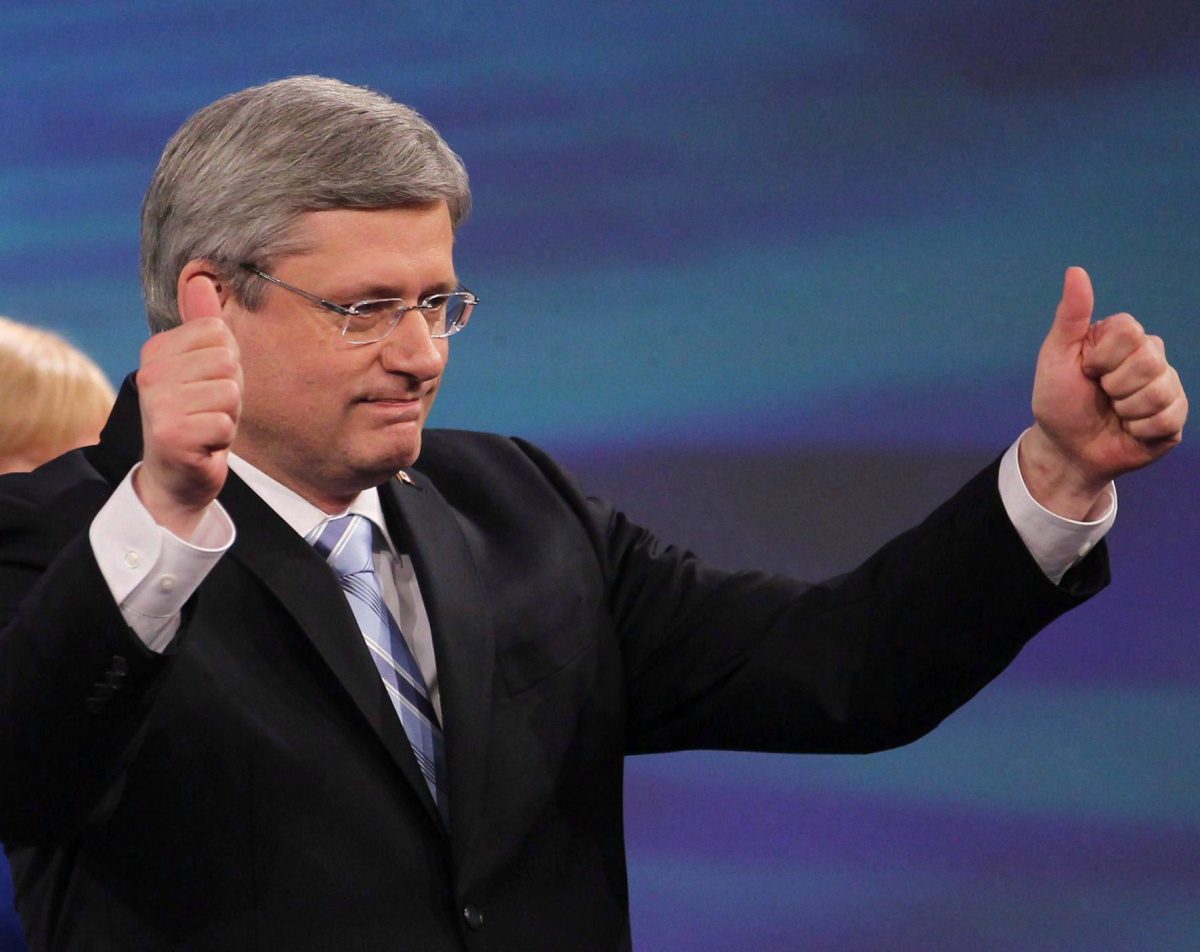One big issue Conservative Party leader Andrew Scheer will have to address sooner or later is his ghost problem.
Now before anyone gets too spooked, let me quickly add when I say "ghost" I actually don't mean it in the sense of a scary supernatural entity.
What I do mean, however, is the Conservative Party of Canada is, in a real way, still haunted by the spirit of one of its key founders Stephen Harper.
In other words, even though Harper departed from the political scene nearly three years ago, his impact on the CPC's political culture continues to live on.
And this really shouldn't be too surprising since, to a large degree, Harper created the Conservative Party; certainly, from its inception he imprinted upon the party his own personal ideological worldview.
In fact, in many ways, the CPC was more of a "Harper Party", than a true conservative party.
And maybe it had to be that way.
People nowadays tend to forget that the CPC is actually a union of two disparate political factions the Progressive Conservative Party and the Canadian Alliance (nee the Reform Party) which for years had been at each other's throats.
Harper realized from the beginning that a party encompassing these two quarreling clans was always in danger of splitting asunder.
So using savage discipline and an iron fist, Harper squashed internal feuding within his Conservative ranks and in the process he managed to forge a formidable political machine.
Yet, this triumph came with a cost.
To make this new Conservative Party work, to make it a united force, Harper gutted it of any ideological notions that might cause friction amongst its component parts.
So he cast aside the Canadian Alliance's populism and fiscal conservatism; he reined in the old PC party's "Red Toryism" and basically all but eliminated the social conservative agenda.
What he was left with was a united party that could contend for power, but which was also lacked a soul.
And soulless it remains to this day.
Indeed, I'd argue Scheer won the CPC's first-ever leadership race precisely because he was the most "Harper-like" of all the candidates.
Unlike Maxime Bernier who offered a strong dose of libertarianism, or Kellie Leitch who pushed populism, or Michael Chong who was the Red Tory champion, or Brad Trost who took up the banner of social conservatism, Scheer represented no ideological faction or tribe; he stood instead as the bland, but unifying choice.
But while Scheer's similarity to Harper helped win him the leadership stakes, it now presents him with a challenge.
After all, Scheer is a fine man and all, but he's also basically "Harper-lite."
That's to say he seems to lack Harper's keen strategic mind and Harper's sense of gravitas and most obviously of all, he lacks Harper's toughness.
My point is, when grassroots conservatives consider Scheer as their leader, he could suffer in comparison to his predecessor.
This is especially true now that nostalgia is kicking in and time has softened the sting of Harper's 2015 electoral disaster.
It's interesting to note, for instance, that some conservatives are circulating social media memes featuring a photo of Harper and the words: "Miss me yet?"
Nor did it help Scheer that Harper seemed to have a tougher response than he did to Trudeau's decision to pay out $10 million to Omar Khadr.
Also Harper's prestige got a bump recently when he was elected chairman of the International Democrat Union, a prominent conservative organization.
At any rate, what it all boils down to is, it's bad for Scheer if conservatives are looking backward instead of forward.
This why he needs to escape from his predecessor's shadow; this is why he needs to create his own identity.
It's the only way, he can truly exorcise Harper's ghost.








